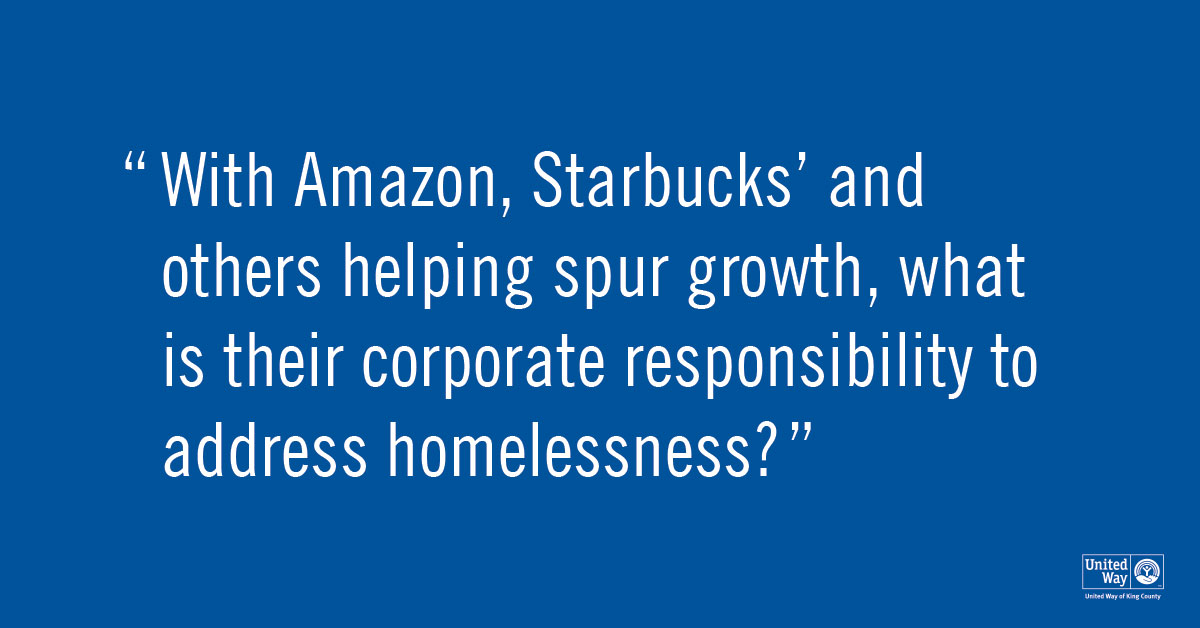Answering Your Questions About Homelessness
Last month, at our first-ever Changemakers Rally, attendees had a chance to ask questions about the homelessness crisis to representatives from United Way, All Home, Amazon, Zillow, Starbucks and more. We had more questions than time to answer, however, so we’re answering them here. Check back for more over the next few weeks and ask anything that you’ve been wondering about in the comments!
With Amazon, Starbucks and other companies helping to spur the city’s growth, what is their corporate responsibility to address homelessness and affordable housing?
Homelessness is a crisis in the Seattle area and it’s going to take a community response to solve it. Nonprofits are committed to investing in and supporting people who are experiencing homelessness, but the business community and government leaders have to join United Way and other nonprofits in finding real solutions.
Some of Seattle’s biggest companies have already invested millions in housing solutions which have moved homeless families into housing. Continued community investments in affordable housing plus work in other areas like homelessness prevention, increased mental health funding and a hyper-efficient coordinated entry system for homeless people will help solve the crisis.
What about a moratorium on housing?
It’s true: The Seattle area is the ninth fastest-growing metro in the nation, gaining about 1,100 new residents each week, according to the US Census Bureau.
In response, nearly 12,000 apartment units were completed in 2017 and another 8,000 are scheduled for completion in the first half of this year. However, most of these new apartments are being built in downtown, Belltown and South Lake Union, and have extremely high price tags–putting them out of range for many people.
The areas in South King County with the highest population increases–Burien, Des Moines, Kent, Federal Way–didn’t have a single new apartment last year.
Is this a problem? Yes. But should we let that be an excuse? No. We can’t let it be an excuse for having 5,000 people living without shelter. Instead we are focused on scaling creative solutions that are proven to work like Jobs Connect and Streets to Home to move more people from out of homelessness.





Comments